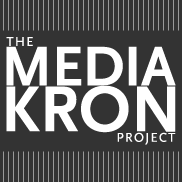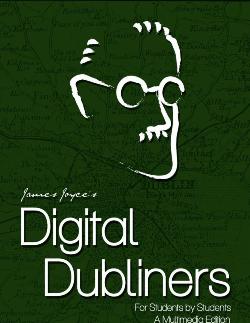 Fresh off of its second year of partnerships with six northeastern colleges and universities, Boston College’s Instructional Design + eTeaching Services (IDeS) department is beginning to look at ways to expand access to its proprietary MediaKron digital humanities platform to other institutions, according to Tim Lindgren, senior instructional designer for IDeS.
Fresh off of its second year of partnerships with six northeastern colleges and universities, Boston College’s Instructional Design + eTeaching Services (IDeS) department is beginning to look at ways to expand access to its proprietary MediaKron digital humanities platform to other institutions, according to Tim Lindgren, senior instructional designer for IDeS.
“We’re trying to find a sustainable model for sharing it, and also trying to enhance its capabilities for the kind of work that people here [at Boston College] want to do,” Lindgren told LJ.
Developed to help university faculty and instructors “tell stories with digital content” this latest, 3.0 version of MediaKron is a freestanding HTML 5 application with a Drupal-based datastore and custom JavaScript written by IDeS. It is designed to make it easy for teachers to upload images, audio, video, and text to create dynamic, interactive learning sites on the web, with information displayed via timelines, maps, or slideshows, for example. MediaKron can also be used as a collaborative tool enabling students to work together on sites or create their own projects. In its latest iteration, IDeS is hoping that the tool catches on with digital archivists and other academic librarians.
“We’re more and more seeing libraries as one of our exciting potential partnerships,” Lindgren said. “Many of the projects we’ve done have had a library component, but we’re going to be deepening that connection. There are many librarians that work closely with faculty and students and often want to have a way for people to wire up projects quickly, but also get them engaged with other parts of the library collection. We’re hoping that this collaboration will solve some problems for them [in ways that] benefit the MediaKron project as a whole, and that we can get a lot of input—especially as we are thinking of import, export functionality and integrating with external content. So, there’s a real effort to be part of a more open data sharing framework as we go along to figure out how we can both import from databases but also make MediaKron available with its own API, or some way that it can share data with other sources.”
Lindgren described MediaKron as a suite of interfaces that lower the barrier for people to get educational sites up and running with little hassle. There are, he acknowledged, many tools that overlap with the platform’s capabilities—learning management systems to distribute content to students, mapping and timeline software, open source content management systems (CMSs) like WordPress or Drupal for running blogs or websites, and even digital humanities suites such as Omeka. With MediaKron, however, IDeS has worked to create a platform that offers a robust set of features but requires minimal technical skills.
“We’re really thinking about the average user who may not be technical and who may not have much in terms of resources and has 15 weeks to get a project going,” Lindgren explained. “This is designed to hit the sweet spot of ease of use, with enough capabilities that people can do really meaningful projects.”
Judging by MediaKron’s documentation site, the learning curve should be minimal for users who are familiar with uploading content into a CMS such as WordPress.
The idea for MediaKron originated almost a decade ago, when IDeS was working with faculty to create customized sites for individual courses, such as the Roma: Caput Mundi site that enabled art history students to view Renaissance and Baroque monuments in Rome, benefiting from additional context provided by maps and timelines. While these sites were useful for the purposes of those specific courses, the investment of time and resources required to build customized sites was not scalable.
“We looked at these as really exciting projects, but we wanted to figure out ways to make what they had done available to other people,” Lindgren said.

Digital Dubliners, a MediaKron student project led by Boston College Professor Joseph Nugent, is now available as an iBook
The IDeS team began building the platform in 2006 using Drupal, but MediaKron really began to take off in 2012, when a $500,000 grant from the Davis Educational Foundation helped fund additional development and the expansion of the project to six partner institutions: Boston University, Bucknell University, Clark University, Dartmouth College, Providence College and Worcester Polytechnic Institute.
The grant was extended in 2013, enabling Boston College and its partners to continue producing and showcasing new projects, such as Digital Dubliners, a student project developed at Boston College. The project, which has since been converted into an iBook, is a virtual guide to James Joyce’s Dubliners offering visual context for sights and locations mentioned in the book, as well as audio for songs mentioned in the book. Other projects included the Great Problems Seminar: Heal the World, in which Worcester Polytechnic Institute biotechnology professor Jill Rulfs had students use MediaKron collaboratively to study the London cholera epidemic of mid-19th century.
MediaKron is currently a proprietary solution that is only available to faculty, staff, and students at Boston College and its partners, but Lindgren reiterated that IDeS was ultimately aiming to make the platform more broadly available.
“We’re working mostly with our partners, but we’re open to hearing from people who are interested in MediaKron and would like to be in conversation about it,” Lindgren said. “Maybe out of that some kind of partnership or ideas for sustainability might emerge.”


